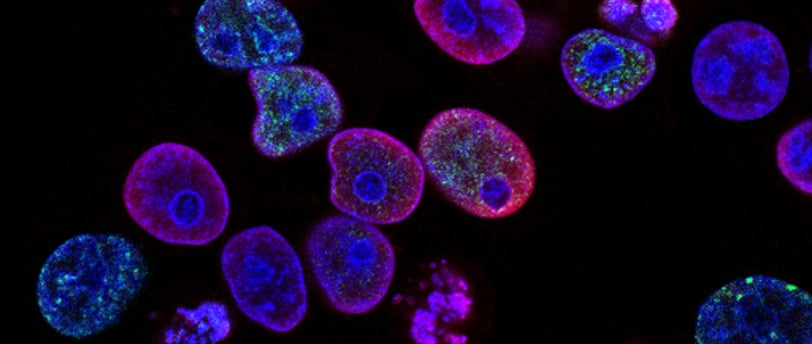Cancer as a Metabolic Disease: Could Your Diet be Fuelling Tumour Growth?
Benjamin Tuckley
2/5/20254 min read


What If Cancer Isn’t Just A Genetic Lottery?
Cancer is one of the most feared diseases in the world, yet few people question why rates have skyrocketed in the past century. In the UK, nearly 1 in 2 people will be diagnosed with some form of cancer during their lifetime.
For decades, we’ve been told that cancer is simply the result of bad luck—random genetic mutations we have little control over. But what if that’s only part of the story?
New research suggests cancer isn’t just a genetic disease—it’s also a metabolic disease. The same insulin resistance, chronic inflammation, and metabolic dysfunction that fuel obesity, diabetes, and Alzheimer’s may also create the perfect environment for cancer to develop and thrive.
For years, mainstream medicine has focused on mutations as the primary driver of cancer. But emerging science is revealing something deeper—our modern diet and lifestyle may be setting the stage for cancer long before the first tumour forms.
In this blog, we’ll break down:
Why cancer cells behave differently from normal cells
The overlooked connection between sugar, insulin, and tumour growth
How metabolic dysfunction creates a fertile ground for cancer
What the latest research says about diet’s role in prevention
How Cancer Cells Differ from Normal Cells
To understand why metabolism matters, we first need to look at how cancer cells function.
The Warburg Effect: Cancer’s Unique Metabolism
Back in the 1920s, Nobel Prize-winning scientist Dr. Otto Warburg made a groundbreaking discovery:
Cancer cells don’t produce energy the same way normal cells do.
Mitochondria are the energy factories of your cells, converting food into fuel. In healthy cells, they efficiently produce energy using oxygen. But in cancer cells, this system breaks down.
Instead of using oxygen to generate energy (as healthy cells do), cancer cells rely almost exclusively on fermenting glucose (sugar) for fuel—even when oxygen is available.
This is known as The Warburg Effect, and it’s one of the hallmarks of cancer.
Why does this matter? Because it means that cancer cells:
Cancer cells consume far more glucose than normal cells.
Cancer thrives on sugar—high blood sugar and elevated insulin levels create the perfect environment for tumours to grow.
Cancer cells struggle to use fat or ketones for energy, making them dependent on glucose.
This raises a critical question: If cancer cells are fuelled by sugar, could diet play a bigger role in prevention than we’ve been told?
The Connection Between Insulin, Sugar, and Cancer Growth
Most people know insulin as the hormone that regulates blood sugar. But insulin is also one of the most powerful growth signals in the body—telling cells to multiply and store energy.
Here’s where it becomes a problem:
High insulin promotes rapid cell growth—including cancer cells.
Insulin resistance (from excess sugar and carbs) creates a chronic state of high insulin.
This gives cancer a constant fuel supply to grow and spread.
Studies show that people with high insulin levels (such as those with Type 2 diabetes, obesity, or metabolic syndrome) have a significantly higher risk of developing cancer.
In other words: Chronically high insulin doesn’t just lead to weight gain—it creates a biological environment where cancer cells thrive.
Inflammation and Cancer: The Perfect Storm
Cancer doesn’t develop overnight—it takes years (or decades) of chronic inflammation to create the right conditions.
How Inflammation Fuels Cancer Growth:
Damages DNA and weakens the immune system’s ability to detect cancerous cells.
Increases oxidative stress, creating genetic mutations that drive tumour development.
Fuels blood vessel formation (angiogenesis), helping tumours grow faster.
A pro-inflammatory diet filled with seed oils, processed foods, and sugar creates the perfect storm for cancer to develop and progress unchecked.
The Overlooked Role of Advanced Glycation End Products (AGEs)
Another overlooked driver of cancer is Advanced Glycation End Products (AGEs)—harmful compounds that form when sugar binds to proteins or fats in the body.
Why this matters:
High blood sugar speeds up AGE formation, which damages tissues and accelerates ageing.
AGEs cause DNA mutations, triggering uncontrolled cell growth.
AGEs promote chronic inflammation, further fuelling cancer development.
The higher your sugar and processed food intake, the more AGEs you accumulate—raising your cancer risk significantly over time.
Cancer and Metabolic Health: What the Research Says
In recent years, researchers have started re-examining the metabolic roots of cancer, leading to some groundbreaking findings:
People with insulin resistance and diabetes have up to a 50% higher risk of developing certain cancers.
Tumours thrive in high-glucose environments but struggle when deprived of sugar.
Metabolic therapies (like low-carb, ketogenic, and fasting approaches) may help “starve” cancer cells while strengthening healthy ones.
This research doesn’t mean diet alone is a cure, but it raises an important question:
If we know that cancer cells depend on sugar, why are we not focusing more on diet and metabolic health as a prevention strategy?
Final Thoughts: Cancer Prevention Starts with Metabolic Health
Cancer is not just a genetic disease—it is deeply tied to metabolic dysfunction, insulin resistance, and chronic inflammation.
For decades, we’ve been told that cancer is just bad luck—but the reality is that modern diets have created the perfect environment for cancer to thrive.
The good news? You CAN take action to protect yourself.
By addressing metabolic health, stabilising insulin levels, and reducing inflammation, you don’t just improve your overall health—you help create a biological environment where cancer struggles to take hold.
Want to Take Control of Your Metabolic Health?
If you’re serious about improving your long-term health, lowering inflammation, and reducing your risk of chronic disease, The Mindful Metabolism Programme can help.
This 16-week metabolic reset is designed to:
Clear out chronic inflammation and metabolic dysfunction.
Optimise your body’s ability to regulate insulin and prevent disease.
Provide you with the tools, education, and community support to take control of your health.
Join a supportive community of like-minded individuals who are taking action to protect their future.
Click below to learn more and start your metabolic reset today.
Currently 70% Off – If you’re ready to take control of your health, now is the perfect time to join.
Disclaimer: This blog is for educational purposes only and is not intended as a substitute for medical advice.
Health
Learn about metabolism, hormones, and inflammation.
Support
Benjamin@learnmetabolism.com
© 2024. All rights reserved.
